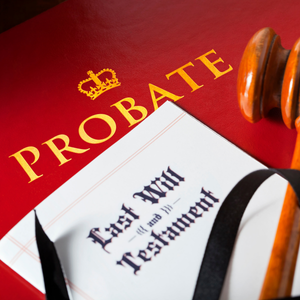
When selling inherited property in Cleveland, Ohio, it can be complicated. A smooth transaction requires understanding legal and market nuances. This guide addresses common issues and provides actionable steps to sell heir property. Cleveland House Buyers can help beneficiaries unlock their property’s potential or resolve estate issues sell in the Cleveland real estate market.
Brief Overview
Selling inherited property in Cleveland, Ohio, involves navigating legal complexities, understanding market dynamics, and managing emotional decisions. The guide outlines essential steps, legal requirements, and strategic options available, emphasizing the importance of professional real estate and legal advice. For a faster, smoother transaction, consider partnering with We Buy Houses in Cleveland and nearby cities to secure reliable offers while maximizing the property’s value.
Key Highlights
- Learn how to sell inherited property in Cleveland, Ohio, legally.
- Management of estate assets requires knowledge of Ohio probate law.
- Open communication between heirs can settle disputes and sell property.
- Consider professional appraisal and staging to boost property value and appeal.
- Selling, renting, or auctioning depends on market conditions and needs.
Understanding Inherited Property in Ohio
Overcoming the complexities of inherited real estate in Ohio can be difficult. Ohio property and inheritance laws must be understood. The local regulations in Cleveland, Ohio, present unique challenges and opportunities. Inherited property and legal issues are explained in this section. Now let’s explore inherited properties and the legal factors that affect their sale and management.
What is Inherited Property?
In Ohio, heirs inherit real estate from deceased family members. These assets, such as houses, land, or other real estate, often have sentimental value and financial obligations like taxes, maintenance, and heir disputes.
Probate transfers inherited property legally. In Ohio, probate validates wills, enforces inheritance laws, and clarifies heir rights. Ohio’s intestacy laws govern property distribution without a will, making legal advice essential to avoid disputes and ensure a smooth transfer.
Selling, renting, or keeping inherited property can be difficult. Financial situation, property condition, and personal preferences affect these choices. Hiring legal and real estate professionals helps heirs navigate, protect their rights, and make informed decisions.
Consider these steps to navigate Ohio’s inherited property process:
- Determine the property’s market value for financial decisions.
- Talk to a probate attorney about the legalities.
- Consider how property taxes may affect your inheritance.
- Assess the property’s sentimental value versus its financial burden.
- Consider selling strategies before listing the property.
- Consider the pros and cons of renting inherited property.
- Open communication with co-heirs can prevent or resolve disputes.
Each step simplifies inherited property management, making the transition easier for everyone.
Common Legal Aspects in Ohio

In Ohio, probate laws govern inherited real estate transfers. Probate courts validate wills, appoint executors, and distribute assets according to the deceased’s wishes or state law, affecting inherited property sales.
Executors settle debts, taxes, and liabilities before transferring property to heirs. Ohio has no estate tax, but federal estate taxes and spousal elective share protections may affect inheritance rights. Resolving heir disputes and ensuring a clear title are also important legal steps.
Cleveland’s zoning, property tax, and maintenance codes affect inherited property management and sale. Legal and real estate professionals help heirs comply with Ohio law, avoid disputes, and complete transactions smoothly.
Preparing to Sell Inherited Real Estate in Ohio
Selling inherited real estate in Ohio requires careful planning to comply with state laws and maximize returns. Heirs must balance legal procedures with family obligations, which are emotional and logistical. In this preparation phase, property valuation and documentation are handled to streamline the transaction. Understanding these components helps prepare the inherited property for sale by laying the groundwork.
Essential Steps Before Selling
Perform a professional home appraisal before selling an inherited Ohio property to determine its market value. This helps set a competitive listing price, anticipate taxes, and speed up the sale. Hiring a Cleveland real estate appraiser ensures a fair and accurate assessment.
Work on repairs, maintenance, and staging. Fixing issues and improving the home’s appearance attracts buyers. Consulting contractors and staging experts can maximize the property’s selling potential by highlighting its strengths and making a good first impression.
Finally, consult an experienced real estate agent and review Ohio law. Agents advise on local market trends, marketing, and probate law. Understanding liabilities like taxes and mortgages helps heirs sell smoothly and legally.
Key Documents Required
Ohio inherited property sales require careful document preparation. The property deed should be lien-free and confirmed by a title company and title insurance. Ohio’s intestacy laws govern asset distribution without a will.
The probate court gives the executor letters of administration or testamentary to manage the sale. Estate and inheritance tax waivers, mortgage or debt records, and tax documents ensure all financial obligations are met before closing.
A property disclosure form, property tax records, home insurance policies, and an affidavit of property value increase transparency and buyer confidence. Consult a real estate attorney to ensure all documentation meets Ohio legal requirements and ensure a smooth sale.
| Step Description | Importance | Professional Tip |
|---|---|---|
| Obtain Property Appraisal | Determines the current market value of the property. | Engage a licensed appraiser familiar with Ohio real estate markets to ensure accuracy. |
| Check Title and Ownership | Confirms legal ownership and identifies any liens or encumbrances. | Consult a title company to conduct a thorough title search and resolve issues before listing. |
| Secure Probate Clearance | Mandatory for transferring ownership of inherited property. | Work closely with a probate attorney to expedite the process efficiently. |
| Gather Essential Documents | Includes deeds, tax records, and historical sale documents needed for sale. | Organize and digitize all documents for easy access during negotiations and closing. |
| Select a Real Estate Agent | A professional agent can streamline the sales process and maximize property value. | Choose an agent with experience in handling inherited properties and a strong track record in the local market. |
| Prepare Property for Sale | Enhances property appeal and potentially increases sale price. | Invest in minor repairs and curb appeal to make a positive impression on buyers. |
This table highlights the crucial steps and documentation required for a seamless transaction when selling inherited real estate in Ohio.
Legal Aspects of Probate in Ohio
Ohio probate laws must be understood to efficiently manage and sell inherited real estate. The probate court oversees the transfer of estate assets to lawful heirs, which can drastically affect selling an inherited house. Understanding probate avoidance can speed up estate settlement and property sales. These legal basics help heirs navigate Ohio’s complex estate process.
How Probate Affects Selling
Ohio probate governs property distribution, will verification, and estate administration by appointing executors. This process settles debts and distributes assets according to the deceased’s wishes or state law, but it can delay selling an inherited house.
Executors must inventory assets, manage expenses, and get court approval for property sales during probate. Ohio’s inheritance laws, especially without a will, can complicate sales and cause heir disputes, affecting timelines.
Probate may increase costs and lengthen the selling process, but it protects ownership rights and resolves disputes, giving buyers a clear title. Understanding probate helps heirs and executors plan, maintain property, and work with professionals to sell efficiently.
Strategies to Avoid Probate

Ohio probate avoidance simplifies selling inherited property, saving time and money. A living trust lets a trustee manage and transfer property to beneficiaries without probate, ensuring a smooth sale.
Joint tenancies with right of survivorship automatically transfer property to surviving owners, speeding up decisions without probate. Without court intervention, Transfer-on-death (TOD) or payable-on-death (POD) designations can transfer property directly to named beneficiaries.
Estate planning requires professional help. Consult an estate lawyer or financial advisor to ensure that Ohio law and personal circumstances are met. Planning reduces disputes, streamlines inheritance, and helps heirs sell property.
Determining Property Sale Authority
Understanding legal authority and probate proceedings in Cleveland, Ohio, is necessary to sell inherited property. Knowing who can act on inherited property is crucial. Multiple heirs have legal stakes in the property, making it crucial. This segment discusses legal authority, probate court processes, and how shared ownership among heirs can affect property sales.
Authorizing Legality
Ohio probate confers legal authority to sell inherited property. The executor or administrator receives letters of administration or testamentary from the probate court to represent the estate’s heirs. The property cannot be sold without this permission.
Executors settle debts, maintain property, and distribute assets according to the decedent’s wishes or Ohio law. Though probate can delay selling an inherited Cleveland house, it prevents disputes and ensures a legally binding transfer.
Setting authority is harder with multiple heirs. Mediation may help co-executors agree on decisions. Follow court orders, work with a probate attorney, and protect heirs’ interests for a smoother, legal sale.
What if Multiple Heirs are Involved?
A multi-heir estate can be difficult to sell and cause disputes or delays. Each heir has a legal interest in the property, making decisions difficult. A legal advisor can help you negotiate and avoid conflicts in Ohio’s inheritance and probate laws.
Open communication among heirs is key. Discussing individual interests, expectations, and financial goals can align decision-making, but mediation may be needed to resolve disputes. Property division is legal when a will is absent or title issues exist due to familiarity with Ohio’s intestacy laws and court processes.
Having one executor or administrator simplifies management and sales. A skilled real estate agent can help create a market strategy that benefits all heirs. Using legal advice, clear communication, and professional support, heirs can honor the decedent’s wishes and sell the property fairly and profitably.
Effective Strategies for Selling an Inherited Property
Selling an Ohio inherited property is complicated legally and emotionally. Understand the strategies that streamline the process and maximize asset value. Successful sales require understanding your selling options and overcoming common challenges. To efficiently sell inherited property in Cleveland, Ohio, we’ll discuss legal requirements and practical ways to overcome emotional and logistical obstacles.
Options for Selling in Ohio
Know your Ohio inherited home selling options. A local agent can boost property value. Cleveland brokers advise on pricing, marketing, and timing to match market trends.
Consider selling “as is” to an investor promptly. This method lowers repair costs and stress but lowers the sale price. Investor home buyers in Ohio and nearby cities are fair and efficient when reviewed. While maintaining ownership, renting the property generates a steady income, but tenant management and Ohio rental laws are needed.
While auctions are unpredictable, they sell faster and generate competitive bids. A good auction house improves results. For a successful sale, consult experts. The best strategy depends on financial goals, market conditions, and personal circumstances.
Challenges and How to Overcome Them

Legal issues arise when selling inherited Cleveland real estate during probate. Time-consuming and complicated are the validation, executor appointments, and ownership transfers. Ohio-licensed probate attorneys can help heirs overcome these challenges and comply.
Also important are emotional and financial issues. Inherited disputes can arise from sentimental attachments, making mediation and open communication crucial. Knowledge of estate and property taxes, including capital gains, is essential. Financial advisors can help reduce taxes and guarantee a profitable sale.
Property and multiple heirs complicate matters. To attract buyers, outdated or damaged homes may need repairs, and shared ownership can complicate decisions. Strategic renovations, inspections, and a lead decision-maker can streamline the process. If heirs plan, get professional help, and communicate, they can sell their estate smoothly and profitably.
Selling heir property in Cleveland, Ohio, can be complicated but manageable with guidance. Understand legal requirements, seek professional advice, and resolve title issues to streamline the sale. Selling to maximize property value or simplify asset distribution requires clear stakeholder communication. To avoid problems, use experienced real estate agents and lawyers. This approach protects your interests and ensures a fair and profitable property sale for all heirs. Contact Cleveland House Buyers for expert guidance on managing your inherited property.
Need to sell inherited property in Cleveland? Cleveland House Buyers offers fair cash deals, handles all details, and makes the process easy. Call (440) 577-6552 for a no-obligation offer today!
FAQs
What is their property in Cleveland, Ohio?
Cleveland’s inherited property, often involving probate and taxes, is real estate passed from deceased family members.
How does probate affect the sale of inherited property?
Will validation and asset transfer be handled by probate. Selling inherited property requires court approval and can delay the process.
What are the steps to prepare an inherited property for sale?
An appraisal, repairs, and staging are crucial. Ask a local market-savvy real estate agent for advice.
Ohio inherited property sales: who can?
A probate court grants letters of administration or testamentary to an executor or administrator to manage and sell inherited property for family members.
Selling multi-heir inherited property: what are the common challenges?
Shared ownership causes legal, emotional, and logistical issues. To avoid conflicts, communicate, mediate, and plan.
Helpful Cleveland Blog Articles
- Optimal Months For Selling Your Home In Cleveland, Ohio
- Sale Of A Cleveland, OH Home Amidst A Pending Lawsuit
- How To Successfully Sell Your House At Auction In Cleveland, OH
- Expert Tips For Downsizing Your Home In Cleveland, Ohio
- Selling a Fixer-Upper Home In Cleveland, Ohio’s Real Estate Market
- Successfully Selling Your Cleveland, OH, Home With A Squatter
- Navigating Inherited Real Estate With Siblings In Cleveland, OH
- Strategies To Stop Foreclosure On Your Home In Cleveland, OH
- Refinancing Your Cleveland, OH, Home After Divorce
- Inheriting A Mortgaged House In Cleveland, OH
- Closing After An Appraisal In Cleveland, OH
- A Guide To Selling Your House In Cleveland, OH
- Can Heir Property Be Sold in Cleveland, OH
- How Much Does Home Staging Cost in Cleveland, Ohio
- Can I Rent Out My House During Divorce in Cleveland, Ohio

